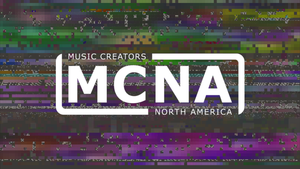The Music Creators North America coalition has called on record labels, music publishers and AI companies to “adhere fully to transparency, disclosure and creator-consent standards” as they all begin to negotiate licensing deals around generative AI services.
MCNA, which brings together various organisations representing songwriters and composers across the US and Canada, is the latest music creator group to demand transparency and creator-consent in AI, following the news Universal Music has settled its lawsuit with AI-company Udio and entered into a licensing deal covering a revamped Udio AI music service that will launch next year.
In a statement, MCNA says it is “particularly concerned” about “recent public endorsements by several music industry sources” of the Universal/Udio legal settlement, “even though many of the terms” of the settlement “remain undisclosed”.
Universal, Udio and their “supporters” apparently believe, it goes on, that “since the settlement will purportedly require the opt-in consent of creators to make them subject to the agreed upon future licensing terms, full transparency at present remains unnecessary”.
“We wholeheartedly disagree”, it adds, explaining that MCNA members “remain apprehensive that such blind endorsements are evidence of an aggressive, market-pressure strategy by the litigants to cut off public discussion of the deal’s less advantageous aspects for songwriters, composers and artists while the opportunity for such creators to have meaningful input still exists”.
Quite how Universal’s Udio deal will work remains unknown, although Udio CEO Andrew Sanchez talked a lot about artists formally ‘opting-in’ to the new service his company is developing during a Billboard interview last month.
It’s also thought that that new service will enable AI-generated voice swapping and mash-ups, which are specific scenarios where Universal CEO Lucian Grainge has previously said artist and songwriter consent will be sought.
However, the majors have so far refused to confirm that they will get explicit artist and songwriter consent before allowing recordings and songs they control to be used in the more general training of generative AI models, including the Udio model that will power the new service.
MCNA’s statement continues, “We are unable to accept assurances concerning the efficacy of the alleged opt-in consent provisions until seeing the entirety of the deal in writing”.
And that level of detail is required, it adds, because “past experiences with oral assurances by multi-national music conglomerates that turned out not to be wholly accurate have made the music creator and artist communities highly sensitive to promises without proof”.
MCNA’s statement follows similar calls for transparency and creator-consent from the Music Artist Coalition in the US, and the UK’s Council Of Music Makers, which brings together UK organisations representing artists, musicians, songwriters, producers and managers. MCNA references and repeats the concerns expressed by MAC and CMM in its statement.
It then concludes by saying that ensuring a “sustainable future for music creators and artists in the era of GenAI requires several immediate actions to establish standards and safeguards”. Some of those actions fall on governments and the AI companies, but some on record labels and music publishers.
Among other things, it calls for national regulations requiring generative AI companies to be transparent about what music they are using when training their models, repeating the calls for full transparency in AI which have been made by both rightsholders and creators across the music industry.
It also wants legal clarification that “the unauthorised use of copyrighted musical works in the ‘training’ of GenAI systems and in the creation of competing derivative works is presumptively unfair”. Which would mean AI companies could not make use of existing music without permission by claiming that AI training is ‘fair use’ under US copyright law. Again, that’s a demand endorsed by both rightsholders and creators.
But some of MCNA’s demands fall onto the rightsholders themselves. That includes deal transparency. Or, in MCNA’s words, “the immediate development through industry negotiation of standards covering timely disclosure by all principal stakeholders in GenAI licensing deals - consistent with applicable antitrust laws - of the full details of all such licensing agreements and settlements”.
Plus the “prompt enactment of a uniform system of ‘consent and fair compensation’ rights and safeguards for creators and artists in all GenAI contexts”.

